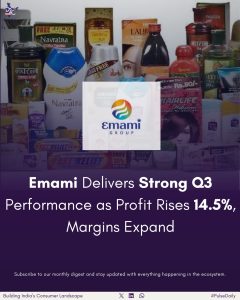
Rebel Foods, a major D2C food and beverage brand in India, has secured ₹150 crore ($17 million) in debt funding from existing investors Alteria Capital and InnoVen Capital. This investment shows strong investor confidence in Rebel Foods’ business approach and strengthens its position in India’s quickly growing D2C market.
According to filings from the Registrar of Companies (RoC), Rebel Foods’ board has approved the allocation of 15,000 non-convertible debentures (NCDs) with a face value of ₹1 lakh each. Alteria Capital invested ₹90 crore ($10.2 million), and InnoVen Capital added ₹60 crore ($6.8 million). The NCDs have a coupon rate of 13.9% and will mature in September 2028.
This move follows Rebel Foods’ recent $25 million funding from the Qatar Investment Authority. With total funding exceeding $780 million, Rebel Foods is one of the top funded D2C brands in India. Previous funding rounds include a $210 million Series G led by Temasek. For those following D2C news, this is a key funding event in the D2C food sector this quarter.
Founded in 2011, Rebel Foods began as a quick-service restaurant and pioneered the cloud kitchen model, now a key part of the D2C business in India. It now runs over 450 kitchens across India, the MENA region, Indonesia, and the UK, serving 75 Indian cities. Its brand portfolio includes Faasos, Behrouz Biryani, Oven Story Pizza, Lunchbox, The Good Bowl, and Wendy’s India.
Rebel Foods has consistently adapted to changing consumer behavior in India. Earlier this year, it launched QuickiES, a 15-minute food delivery app, placing itself at the intersection of D2C food and quick commerce. This move supports broader D2C expansion plans across digital consumer segments, strengthening its innovative approach in a competitive market.
Financially, Rebel Foods has also made good progress. Revenue rose to ₹1,420 crore in FY24, compared to ₹1,195 crore in FY23, while losses decreased by over 42% to ₹378 crore. For investors watching D2C revenue growth and startup values, these numbers show a focused push toward profitability while continuing to expand.
In the D2C industry, Rebel Foods’ recent funding shows increasing investor interest in scalable D2C business models in India. Competing with Curefoods, EatClub, Biryani By Kilo, FreshMenu, and HOI Foods, Rebel continues to stand out through brand building, supply chain improvements, and a strong omnichannel strategy.
As India’s direct-to-consumer food market grows, Rebel Foods is not only scaling but also shaping the D2C landscape. From its start as a QSR to becoming a global cloud kitchen, Rebel shows how D2C brands can use funding, innovation, and consumer understanding to lead the future of food.








